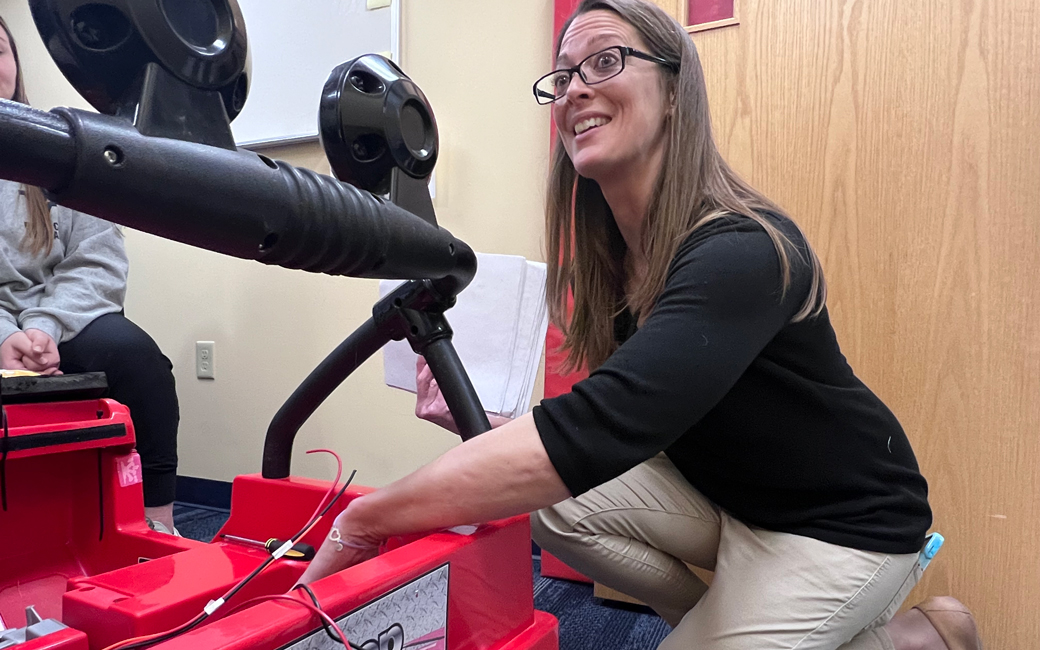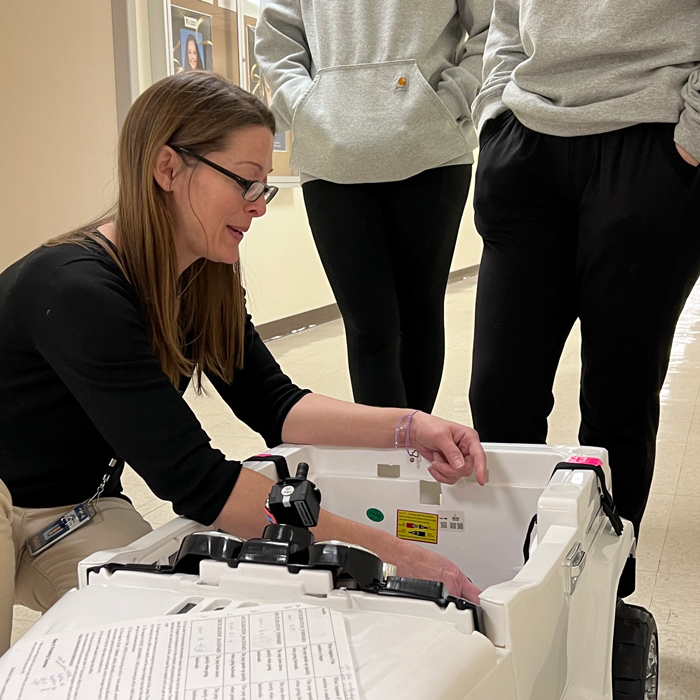Go Carrie, Go!
Discover the occupational science doctoral program, one student’s impactful research
By Casey Bordick '18 '24 on March 1, 2024

The College of Health Professions at TU offers many programs for professionals looking to further their careers and make a positive impact on their communities, including the occupational science doctoral program through the Department of Occupational Therapy and Occupational Science.
Beth Merryman, Ph.D., doctoral program director says, “The program helps students develop a strong foundation in the linkage between people’s participation in their valued life activities (occupations) and health and well-being outcomes.”
Carrie Smith-Bell, an occupational science doctoral student, began the program after working in a physiology and neuroscience lab at West Virginia University (WVU) in Morgantown. After 20 years, Smith-Bell began looking for a career path in occupational science inspired by the quality-of-life occupational services provided to her grandparents and to her community.
With two children, she desired a program that allowed time for family and her professional pursuits. With a 10-year program completion requirement, Smith-Bell explains that “having the flexibility to work around a full-time job and take the kids to sports is a key aspect of the program.”
She now works as an occupational therapist at WVU, where she teaches undergraduate students as part-time faculty and performs research for Go Baby Go—a program helping children with mobility impairments foster developmental growth.
Go Baby Go provides children with low mobility a fun way to explore and play by reconstructing electric toy cars, offering an alternative to power wheelchairs. The car’s foot pedal is removed and replaced by a hand operated accelerator, allowing children to move without using their lower limbs.

This research is helping children in more ways than simply getting around their environment. The toy car provides a foundation for them to socialize with each other.
“A big, powered wheelchair is not familiar to children, but give a kid a toy car and children will be more inclined to communicate. To see the joy it brings, it just warms my heart,” says Smith-Bell. “Children learn so much through play and gain important social skills.”
TU’s occupational science doctoral program provides students with research knowledge that can be taken out of the classroom and implemented throughout the community.
Merryman states, “Students learn methodologies for studying and promoting engagement across the lifespan and have mentored research experiences that help them develop their own lines of scholarship and expertise.”
“It is so practical,” Smith-Bell explains, “I am able to take my research interests and start developing ideas with amazing faculty who have real-world experience in the field.”
She is continuing her research with Go Baby Go while at TU and plans to implement wheelchair replacements for elementary schools in Morgantown. She encourages any prospective students to further their research and knowledge through this doctoral program.
Smith-Bell says, “The program is a great opportunity for professionals to develop their research interests and knowledge.” She explains, “Whether students are familiar with research or just beginning research, they are in a great spot to grow in this program.”
Interested in pursuing a Ph.D. in Occupational Science? Learn more.
Doctoral programExplore similar undergraduate and graduate programs.
The College of Health Professions